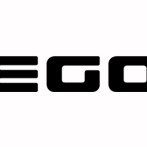Forward Ho!
My husband John and I made our annual pilgrimage to a sacred rite of summer’s end…the Minnesota State Fair. We get there early and stay late, covering miles of fair territory and eating more food than is normal for two human beings. As is customary, we ambled through the cattle and horse barns, delighted by the napping Brown Swiss calf with his unbelievably long eyelashes, as well as the Scottish Highland, looking laid-back, his long shaggy hair blowing breezily in the wind. In the horse barn we saw “Cayenne,” a majestic though anxious horse standing uncomfortably in its stall, a Post It note warning “Do not pet. I bite.” I asked a woman sweeping near the stall about Cayenne and she told me that Cayenne simply does not like being at the fair. She pointed to a fresh new board in the back of the stall, sharing with me that Cayenne had just kicked the old board out yesterday. Cayenne’s handler, she added, doesn’t know what to do to make him comfortable. That word handler, got me thinking about the business environment. Being a self-admitted word geek, several years ago I had looked up the root of the word “manage.” Turns out, it comes from two Latin words, manus meaning “hand” and agere meaning “to act.” Manager and handler are eerily synonymous. While I’m fairly convinced but not absolutely sure that most animals don’t like being handled, I can say without a shadow of a doubt, that most people do not. Being handled or managed often feels manipulative, which not so coincidentally bears the same Latin root, manus. With traditional forms of management, oftentimes, there lacks an inherent trust in another person’s ability to know, to self-govern, to set relevant goals, to perform, to excel. I suggest that all of this people “handling” is creating many of the issues that company leadership bemoans. Perceived lacks of initiative, slacking work style, disengagement, resistant behavior and other negative actions and attitudes may all be born of this dispiriting style of interaction. Many forms of management are still largely un-evolved. Still evident in today’s workplaces is a trace of the paradigm found in the horse and cattle barns. Stalls = cubicles; handler = manager; produce = produce. Hey business, it’s time to leave the barn. Our understanding of what inspires and stimulates human beings and evokes real potential is available and continuing to emerge. There is no reason to remain with these older styles of people management. They are, at their core, limiting and uninspired. Business leaders! Explore what is now available with regard to creating work environments that stimulate potential and engage people to the company and the work. Increasing...
Read More





